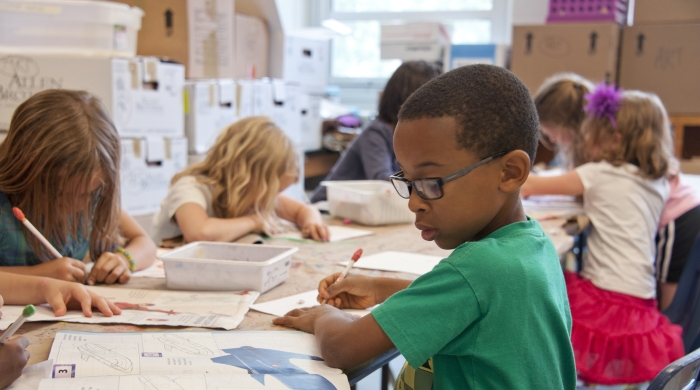The IHDSC working group program gathers diverse faculty and researchers to achieve intellectual and practical goals aligned with our mission. Working groups are faculty-initiated, include scholars from multiple disciplines, and involve collaboration toward a specific goal. Successful applicants are provided resources to support agreed-upon activities over a 1-year period.
Proposed working groups must establish a defined product or goal before any funding will be provided. Specific products or goals can be decided upon after initial planning meetings are held with IHDSC staff. Examples of goals and products include:
- Submitting grant proposals
- Publishing a special journal issue
- Writing blog posts for On the Ground
- Organizing a policy convening
We prioritize proposals that feature two or more of the following components:
- Groups led or co-led by early-career investigators
- Contributions to IHDSC initiatives, such as On the Ground or IHDSC-sponsored events
- New interdisciplinary teams
- Partnerships with community based organizations, non-profit organizations, NGOs, government agencies, or external groups focused on policy or practice
- Faculty or investigators who are new to IHDSC and/or NYU
All proposed working groups should fit within at least one of IHDSC's focus areas, and also meet the requirements listed below:
- Proposals must be interdisciplinary, and include faculty or researchers with expertise in theoretical and analytical approaches from multiple disciplines.
- At least one group member must be an NYU faculty member with an appointment in one of IHDSC's core participating schools: Steinhardt School of Culture, Education and Human Development; Arts & Science; Robert F. Wagner School of Public Service
- Working groups must establish a defined product or goal before any funding will be provided. Specific products or goals can be decided upon after initial meetings are held with IHDSC. Examples of products or goals include a grant proposal, policy convening, edited volume or special journal issue, series of blog posts, a video about policy or practice relevant research, a podcast episode, a small conference, or other events.
Process & Next Steps
Faculty members interested in receiving working group support are encouraged to submit an initial application using the link below. IHDSC staff will review your application and contact you to schedule a meeting. The meeting will serve as an opportunity for IHDSC to provide feedback on your idea, connect you with potential working group members from other departments or disciplines, discuss potential products or goals, and identify any resources that the working group might require (staff support, space, funds). In most cases, applicants will be required to submit a revised application before a final determination can be made regarding support.
If you have questions about the working group program, please contact Chris Barker at cjb241@nyu.edu
Submit a Working Group Proposal
As long as the above requirements are met, groups can include members from the wider IHDSC or NYU community, including faculty, research staff, or graduate students. Groups should be small enough to be productive, large enough to need support, and diverse enough to break new ground.
Submit ApplicationPast and Present Working Groups
NYU Blueprints for Progressive Change in Juvenile Justice
Blueprints for Progressive Change in Juvenile Justice involves faculty working across disciplinary boundaries to address disparities in youth encounters with the legal system.
Child Mental Health Disparities Working Group
The Child Mental Health Disparities Working Group involves faculty across various disciplines partnering with key community settings to develop and evaluate novel approaches to addressing mental health disparities.
NYU-EA Community Impact Hub
The NYU-EA Community Impact Hub represents a research-practice partnership between IHDSC and Educational Alliance (EA), a large New York City community based organization serving 35,000 community members annually across 38 programs.
Improving Nutrition Literacy Among Children, Adolescents, and Young Adults
Children, adolescents, and young adults face a number of challenges related to nutrition, dietary behaviors, and food access. This IHDSC working group works to examine issues of nutrition literacy and food access.





